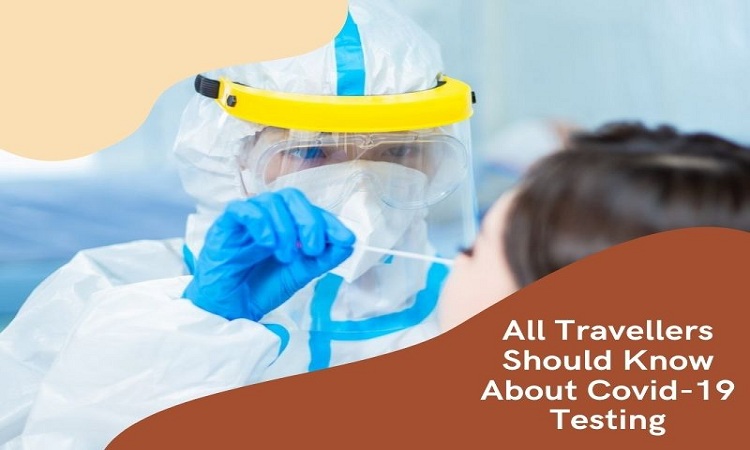Staying several months at home during the Covid-19 lockdown and travel restriction period has left many people eager to leave their homes and travel for both business and pleasure. Although most countries are removing their travel restrictions and bans, people travelling must meet several requirements to enter other countries.
One of the statutory requirements for countries is Covid-19 testing before travelling and gaining access to a different country. However, having a negative Covid-19 test result does not mean you should feel less concerned about keeping yourself and those around you safe. Knowing your status helps to reduce the spread of the coronavirus.
Countries have different new guidelines concerning COVID-19 testing and travelling, so many people keep asking questions about what they need to do to have a successful trip during this pandemic. Below are answers to frequently asked question from travellers concerning COVID-19 testing.
Do I need a negative COVID-19 test result to travel if I have received the COVID-19 vaccine or test positive for COVID-19 antibodies test?
Yes, you do. All travellers need to get a PCR COVID-19 test before air travel, irrespective of their antibodies and vaccination status. You have to present a negative PCR COVID-19 test or document to show you have recovered if previously infected at the airport.
What type of document do I have to present at the airport before boarding my flight?
The document must include your name, sample collection date,the test carried out and must be verifiable. Most airlines state that you should complete the test within three days to the day of your boarding. Most airlines do not accept an antigen or NAAT test.
Do I still need a COVID-19 test if I recently recovered from COVID-19?
No, you do not. People who recently recovered from COVID-19 may not need to get tested again within three months. If you have recovered and meet other criteria to end isolation, you may be able to travel if you present your positive test result and a proof of your recovery, certifying you to travel. Both documents are called documentation of recovery, and you can travel if you have them.
If my test result is negative, do I need another test upon return?
Guideline for air travel states that traveller should get their COVID-19 testing 3 – 5 days before departures and have to self-quarantine for 7 – 14 days in other countries even if they have a negative COVID-19 test result. However, the testing and quarantine recommendations between countries vary. Ensure you visit the official website of your travel destination to know the exact travel and quarantine requirements.
Before you travel, ensure you consult your healthcare provider about your risks, symptoms and potential exposure to know the test you need.
Do I need to get tested before departure, and where can I get a COVID-19 test?
Some countries require travellers to get COVID-19 test before travelling, and when they arrive, you need to check the requirement for your travel destination.
If you want to get a COVID-19 test before travelling, contact your primary healthcare provider for information about approved testing centres near you.
What type of COVID-19 tests are available?
Two categories of COVID-19 test are available – antibody and diagnostic test.
The antibody test checks if you have antibodies for the coronavirus in your blood. The body usually produces antibodies weeks or days after infection. If you have antibodies for COVID-19, it means you either had the virus or currently infected. However, the test may detect antibodies for other types of coronavirus. This makes the antibody test for COVID-19 unreliable to determine the presence or absence of a current infection.
The diagnostic test checks for current COVID-19 infection and two types are available. They include the molecular test that checks for the genetic material of the coronavirus and the antigen test, which checks for the protein found on the virus's surface.
The molecular test includes NAAT (nucleic acid amplification) such as LAMP, TMA, and RT-PCR. These tests detect the genetic material of SARS-COV-2, the virus which causes COVID-19, and require a nasopharyngeal swab, saliva, nasal or throat swab depending on the manufacturer's specification.
The antigen test that checks for the surface protein of the virus takes about 15 minutes and can be performed onsite. The test requires swabbing inside the patient's nose. Neither molecular nor antigen test sample collection is painful, but you might feel a little discomfort during the procedure. Saliva sample collection causes no discomfort.
When should I plan to get my COVID-19 test for travel and how long before I get my result?
Different testing centres have a varying wait time. Ensure you have a flexible travel plan and get your test on time to avoid disappointments. The PCR test may take about 2 – 5 days to get the result, but the antigen test takes about 15 minutes.
Note that regardless of the promised turnaround time for your test, there may be a delay which may affect your travel plans, especially for those whose travel destination require travellers to have a negative COVID-19 test on arrival.
Which countries require proof of a negative COVID-19 test result in arrival?
Some countries require proof of a negative test taken within three days of the travel but ensure you always check the guidelines before you travel for updates and changes in travel requirement for your travel destination.
Does having a negative COVID-19 test result guarantee my safety and that of others?
No, it does not. It is possible to have a false-negative result. However, the PCR test gives fewer false negatives compared to the antigen test.
The PCR test is sensitive and may detect little pieces of the coronavirus genetic material yet to clear after the infection is no longer contagious or active, so a false positive is also possible.
All tests have some degree of a false-positive and negative result, so it is important to perform all test considering the current health exposure and possible exposure. For example, a person with significant exposure, experiencing a fever, and has cough may be falsely reassured by a negative result.
Regardless of your status, especially in high-risk situations, ensure you practise social distancing, hand hygiene and wear your face mask.
What other factors should I consider apart from testing, if I want to travel?
Ensure you consider the nature of healthcare at your travel destination and the proximity of a healthcare facility if you become sick, especially if you have a high-risk contracting the virus and becoming severely ill.
If you need a same day PCR test for travel from an approved COVID-19 testing centre, contact PCR Test Clinic in London now on 020 31373952.
Leave a reply
Your email address will not be published. required fields are marked *







{{comments.length}} Comments
{{ comment.name }}
{{comment.datetime}} Reply{{comment.message}}
{{ comment.name }}
{{comment.datetime}}{{comment.message}}